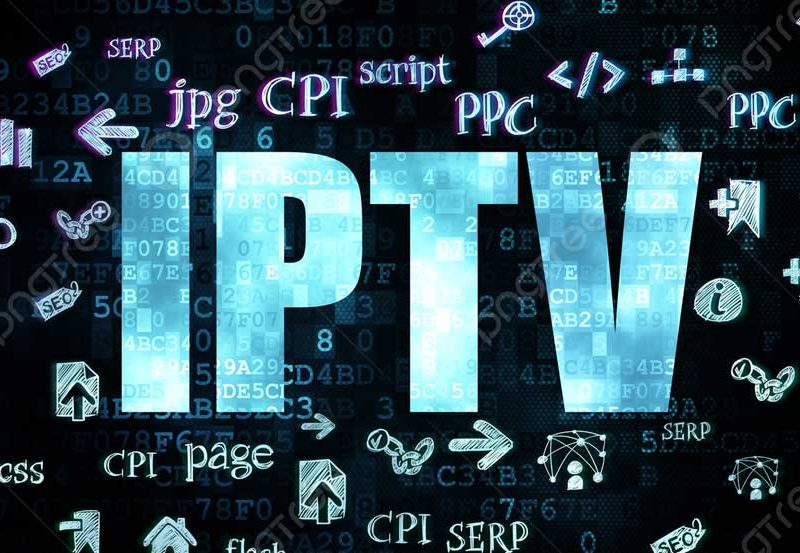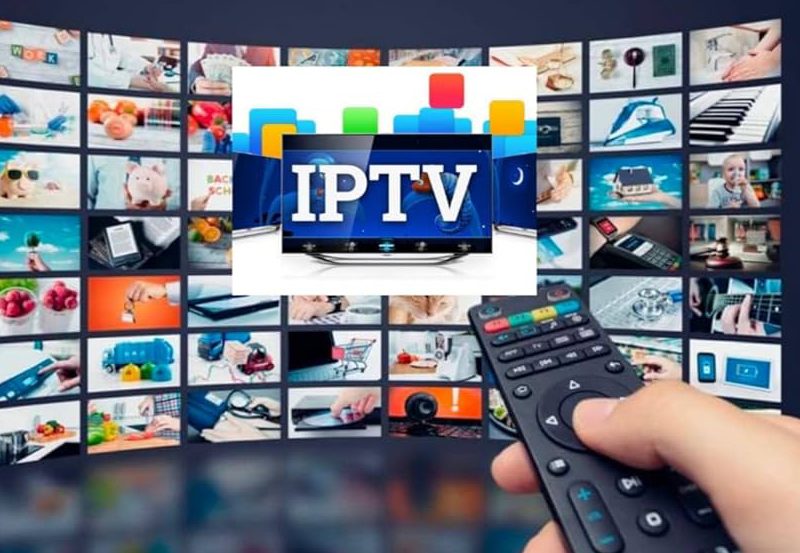In recent years, the nature of work has undergone a significant transformation, with remote work becoming increasingly common across various industries. This shift has been further accelerated by the global pandemic, which necessitated many businesses to adopt remote work practices to maintain operational continuity. In this context, Internet Protocol Television (IPTV) has emerged as an effective tool for facilitating remote work and collaboration.
IPTV enables the delivery of television content over Internet Protocol (IP) networks, allowing users to access live TV, on-demand video, and interactive multimedia services. When applied to remote work scenarios, IPTV provides employees with seamless access to essential company communications, training materials, and other relevant content, regardless of their physical location. The impact of IPTV on remote work is multifaceted, offering advantages such as improved communication, enhanced collaboration, and increased productivity.
By utilizing IPTV technology, businesses can create virtual meeting spaces where employees can interact in real-time, share information, and collaborate on projects. Furthermore, IPTV facilitates the delivery of high-quality video content, which is particularly valuable for training purposes and knowledge sharing within remote teams. As businesses continue to embrace remote work as a long-term strategy, the role of IPTV in enabling seamless communication and collaboration is expected to become increasingly significant.
Key Takeaways
- IPTV and remote work have a significant impact on business, changing the way teams collaborate and communicate.
- Disaster preparedness can be improved with IPTV, allowing for seamless remote collaboration during crises and business continuity.
- IPTV enhances telemedicine and patient care, enabling remote healthcare services and improving access to medical expertise.
- Government initiatives can benefit from IPTV, improving communication and collaboration in public services for better efficiency.
- IPTV streamlines remote work and team collaboration, improving business efficiency and productivity.
Disaster Preparedness and Remote Collaboration: Leveraging IPTV for Business Continuity
Enhancing Remote Collaboration
In the event of a crisis, IPTV can be used to broadcast important updates, emergency procedures, and safety protocols to employees working remotely, keeping them informed and connected to the organization. Furthermore, IPTV facilitates real-time communication between remote teams and decision-makers, enabling swift responses to evolving situations.
Empowering Employees through Training
IPTV can also be used to deliver training and educational content related to disaster preparedness, empowering employees with the knowledge and skills needed to respond effectively in crisis situations.
Ensuring Business Resilience
As businesses prioritize resilience and adaptability in the face of potential disruptions, the integration of IPTV into disaster preparedness strategies will be essential for maintaining seamless remote collaboration and ensuring the safety of employees. By leveraging IPTV for business continuity planning, organizations can ensure that their remote workforce remains well-informed and equipped to handle unexpected challenges.
Remote Healthcare and IPTV: Enhancing Telemedicine and Patient Care
The healthcare industry has experienced a rapid transformation in recent years, with the widespread adoption of telemedicine and remote patient care. This shift has been further accelerated by the global pandemic, which underscored the importance of leveraging technology to deliver healthcare services remotely. In this context, rapid IPTV has emerged as a valuable tool for enhancing telemedicine and improving patient care in remote settings.
By leveraging IPTV technology, healthcare providers can deliver high-quality video consultations, educational content, and medical information to patients in their homes or other remote locations. IPTV can also facilitate real-time collaboration between healthcare professionals, enabling multidisciplinary teams to consult on patient cases and share expertise regardless of their physical locations. Additionally, IPTV can be used to deliver health education programs and wellness resources to remote communities, promoting preventive care and healthy lifestyle choices.
As the demand for remote healthcare services continues to grow, the integration of IPTV into telemedicine platforms will be essential for ensuring that patients receive comprehensive care and support, regardless of their geographical location.
Government Initiatives and IPTV: Improving Communication and Collaboration in Public Services
Governments at all levels are increasingly recognizing the value of remote work and collaboration in delivering public services efficiently and effectively. In this context, IPTV has emerged as a powerful tool for improving communication and collaboration within government agencies and public service organizations. By leveraging IPTV technology, government entities can disseminate important information, policy updates, and public service announcements to employees working remotely or stationed in different locations.
This ensures that all staff members remain well-informed and aligned with government initiatives, regardless of their physical proximity to central offices. Furthermore, IPTV can facilitate virtual meetings, training sessions, and knowledge sharing among government employees, enabling seamless collaboration on projects and initiatives. The use of IPTV in public services also extends to citizen engagement and outreach efforts, as governments can leverage this technology to broadcast public meetings, town halls, and educational content to a wider audience.
As governments continue to embrace remote work as a means of enhancing operational efficiency and flexibility, the integration of IPTV into public service delivery will be instrumental in ensuring effective communication and collaboration across diverse teams and departments.
Business Efficiency and IPTV: Streamlining Remote Work and Team Collaboration
The adoption of remote work has become increasingly prevalent across various industries, driven by factors such as technological advancements, changing work preferences, and the need for business continuity. In this context, IPTV has emerged as a valuable tool for streamlining remote work practices and enhancing team collaboration. By leveraging IPTV technology, businesses can create virtual workspaces where employees can access important company communications, training materials, and collaborative tools from any location with an internet connection.
IPTV also enables businesses to deliver high-quality video content for training purposes, knowledge sharing, and corporate communications, ensuring that remote employees have access to the same resources as their in-office counterparts. Additionally, IPTV can facilitate virtual meetings, webinars, and interactive sessions that promote real-time collaboration among remote teams. As businesses continue to prioritize efficiency and productivity in their remote work strategies, the integration of IPTV into their operations will be essential for creating seamless workflows and fostering a sense of connectivity among distributed teams.
Security and Privacy in Remote Work: Ensuring Data Protection with IPTV
Secure Data Transmission
By leveraging encrypted IPTV platforms, businesses can ensure that sensitive communications, corporate content, and proprietary information remain protected from unauthorized access or interception. This is particularly important for companies handling sensitive data, such as financial institutions, healthcare providers, and government agencies.
Mitigating Security Risks
IPTV technology offers features such as access controls, user authentication, and content encryption that help mitigate security risks associated with remote work. By implementing robust security measures within their IPTV infrastructure, businesses can create a secure environment for remote collaboration while adhering to industry regulations and compliance standards.
The Future of Remote Work Security
As the remote work landscape continues to evolve, the integration of secure IPTV solutions will be essential for maintaining data privacy and protecting sensitive information from potential threats. By prioritizing data protection and investing in secure IPTV solutions, businesses can ensure the confidentiality, integrity, and availability of their sensitive data.
Future Trends and Opportunities: The Evolution of IPTV in Remote Work and Collaboration
Looking ahead, the evolution of IPTV in remote work and collaboration presents exciting opportunities for businesses across various sectors. As technology continues to advance, we can expect to see further innovations in IPTV platforms that enhance the user experience, support advanced functionalities such as augmented reality (AR) and virtual reality (VR) applications for remote training and collaboration. Additionally, the integration of artificial intelligence (AI) capabilities into IPTV systems holds promise for automating content delivery, personalizing user experiences, and optimizing network performance for remote work environments.
Furthermore, the convergence of IPTV with other communication technologies such as unified communications (UC) and cloud-based collaboration tools will enable businesses to create comprehensive digital ecosystems that support seamless remote work practices. As businesses continue to adapt to the changing landscape of work, the evolution of IPTV will play a pivotal role in shaping the future of remote collaboration by providing innovative solutions that enhance connectivity, productivity, and user engagement. In conclusion, the integration of IPTV into remote work environments offers numerous benefits for businesses seeking to enhance communication, collaboration, and productivity among distributed teams.
From disaster preparedness and healthcare delivery to government initiatives and business efficiency, IPTV has proven to be a versatile tool that supports diverse applications in remote work settings. As businesses continue to embrace remote work as a long-term strategy, the evolution of IPTV presents exciting opportunities for driving innovation and shaping the future of work in a digital age. By leveraging the capabilities of IPTV technology while prioritizing security and privacy considerations, businesses can create resilient remote work environments that empower employees to thrive in an increasingly interconnected world.
For more information on how IPTV can benefit businesses in terms of remote work and collaboration, check out this article on premiumiptvservice.click. This article discusses the ways in which IPTV can enhance communication and productivity for remote teams, making it a valuable tool for businesses looking to adapt to the changing work landscape.




